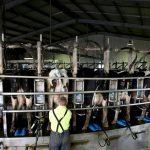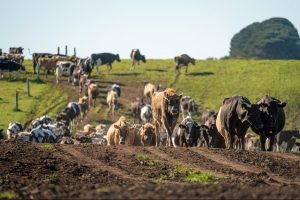
The Melbourne-based market support provider launched its Dairy Trades trading facility last week giving processors an online clearing house to attract bids from food manufacturers on products ranging from powder to long-life milk and butter.
The trading space will reflect local demand and supply at any particular time in the milk commodities market, in particular providing an attractive selling option for surplus products needing a home.
Participants can also commit to weekly monthly or annual contracts or even trade monthly forecast production volumes within the 10 product categories and 37 product listings on the platform.
Further down the track Milk Exchange expects to offer futures contracts, assuming it is granted an Australian Financial Services licence next financial year to participate in the federal government backed price risk management proposal, the Australian Milk Price Initiative.
“Milk Exchange reduces buying and selling to one simple point of contact, avoiding the ring around and run around,” said Milk2Market commercial manager, Richard Lange.
“It’s a three click process for dairy buyers and sellers to nominate their buy or sell requirements, accept that offer, or make a counter-offer.
“With the final click, the trade is accepted under standard terms and conditions.”
In the 12 months since Milk2Market launched Milk Exchange it has facilitated trading in almost 100 million litres of farm milk, having registered about 500 farmers and dairy companies.
Mr Lange said farmer interest had primarily been from Victoria, including from farmer groups which were pooling milk for sale on the portal.
Participating suppliers were commonly splitting some of their production between their contracted milk processor and Milk Exchange’s transparent, electronic market board.
More farmers sign up
While 100m litres was a small volume of milk compared with the 9 billion litres produced annually Australia-wide, Milk2Market had originally expected less than 25m litres to be traded when the new platform tested the mood in its first year.
Milk Exchange has now forecast it could be handling between 10 per cent and 15pc of Australia’s total farmgate milk transactions in three to five years.
Emboldened by the uptake of its initial farmer to milk processor service, Milk Exchange now wanted to connect milk companies with food industry players, wholesalers, traders, retailers or other dairy companies seeking out dairy ingredients.
Mr Lange said normally buyers would have to shop around to fill orders, or sellers seek out potential takers for surplus product, often quitting stocks at distressed prices because they could not afford to keep perishable products in storage for too long.
“There’s strong seller interest in clearing surplus lines,” he said.
Cream was a good example, given the product had a short shelf life and trading and price setting arrangements tended not to be easily benchmarked in the same way markets for butter or milk were.
He said within a few hours of launching the new Dairy Trades @ Milk Exchange, the dairy marketing services and supply chain logistics outfit had received registrations from potential buyers, some from overseas.
The coming week will see the new Milk2Market working in overdrive to introduce its new market option to potential food industry buyers.
About 600 companies from bakeries and chocolate makers to caterers and niche yoghurt producers are among the target audience expected to take advantage of the buying platform.
Important industry tool
“We believe Dairy Trades @ Milk Exchange will be an increasingly important part of the dairy supply chain, using simple processes, efficient technology and remote access capability to link all dairy buyers and sellers,” said Brisbane-based Milk Exchange chairman David Green.
“The service is designed to make the process of buying and selling milk and dairy products simpler, secure and less costly to the benefit of the industry as a whole.”
He said the platform was redefining milk and dairy product trading in a digital age to provide a faster, smarter, simpler and more efficient way to transact business.
Meanwhile, a new governance structure has also been established to effectively separate the management of Milk Exchange from Milk2Market, including a new board with independent oversight.
Dairy Trades @ Milk Exchange operates on Microsoft software used by about 95 per cent of Fortune 500 companies, providing Microsoft’s secure cloud-based technology to give buyers and sellers remote access to the portal, and via mobile applications.
























